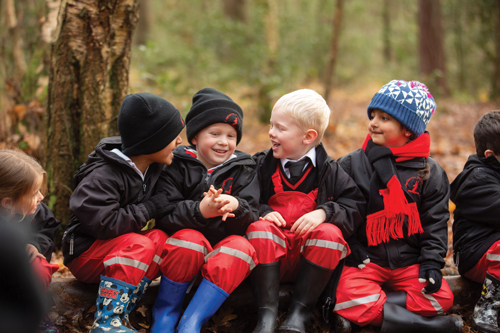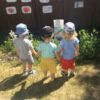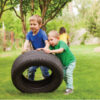
by Stuart Lee
Copthorne Prep School Forest School Leader and Outdoor Activities Instructor
As the world becomes increasingly digital and technology-driven, it’s more important than ever to ensure our children are getting enough time outside in nature. Forest Schools have been gaining popularity around the globe as a way of providing an experience that is both educational and fun for young minds.
In this article, we’ll explore why Forest School is essential in education and how it opens up new avenues for learning beyond traditional classroom walls. So put on your wellies, grab a raincoat, and let’s delve into the wonderful world of Forest Schools!
Introduction to Forest School
When most people think of school, they envision a building with classrooms, a playground, and maybe a field for sports. But what if there was another way to learn? What if students could explore and discover in a natural setting? This is where Forest School comes in.
Forest School is an approach to learning that takes place in nature. It emphasises hands-on, experiential learning in a safe and supportive environment. Forest School can be used with students of all ages, but it is especially beneficial for young children.
The benefits of Forest School are numerous. Studies have shown that time spent in nature can help reduce stress, anxiety and depression. Being in nature can also improve concentration and focus. And because Forest School encourages hands-on learning, it can help promote problem-solving skills and creativity.
Outdoor learning enables us to instil a sense of responsibility in children for their environment and sustainability, discussing how we look after the natural world around us and discussing aspects like recycling, use of plastics, saving energy, collecting water and so on. The children will explore nature, learning about trees, follow the seasons, understand plant growth, explore minibeasts and find the biggest puddle to jump in (weather dependent of course)!
The six Forest School principles are:
• Sessions are delivered on a long-term basis: Forest School needs to be regular.
• Sessions are risk-aware, not risk-averse: Meaningful activities which nurture the instinctive human ability to learn through overcoming a risk, challenge or problem. Teaching the children how to safely use tools like knives and axes for whittling or chopping wood, and how to light and safely be around campfires.
• Forest School is invested in the holistic development (emotional, spiritual, intellectual, social, physical, communication and language) of the participants.
• Forest School should take place in a natural wooded environment.
• Forest School should be run by a qualified Forest School practitioner.
• Forest School is learner-centred with learner-based outcomes.
Benefits of Forest School for primary school students
Children who spend time in nature have shown to have increased levels of physical activity, social and emotional wellbeing and brain development. Forest Schools provide an immersive environment for children to learn about and connect with the natural world. It offers a unique opportunity for children to learn in an outdoor setting and develop a lifelong love of learning.
Other positive outcomes include:
Improved concentration and focus
Studies have shown that being in nature can help improve focus and concentration. This is especially beneficial for students who struggle with attention deficit disorders or who have difficulty paying attention in a traditional classroom setting.
Lower stress levels
Nature has a way of calming people and helping to lower stress levels. This is important for students who are dealing with anxiety or who find the traditional school setting to be overwhelming. Being in nature can help to reduce stress and promote relaxation.
Increased physical activity
Getting outdoors and being active is important for everyone, but it’s especially crucial for growing children and teens. Physical activity has been shown to improve brain function, mood, and overall health. Being outdoors gives students an opportunity to be active in a way that is fun and engaging.
Improved social skills
Outdoor learning provides opportunities for students to work together in small groups or teams. This can help them develop important social skills such as communication, co-operation, and teamwork. It can also help shy or introverted students feel more comfortable interacting with others.
Therefore, it is evident that by incorporating Forest School into primary education, children could not only improve academically but also holistically – and this is fundamental to education. It is more than classroom learning, it is a rounded enriched learning journey to develop children for modern life. With its unique curriculum based on free play and exploration, it is no surprise that Forest School has been gaining in popularity. As parents and educators become more aware of its benefits, it is likely that even more children will have access to this enriching educational experience.
Forest School is an integral part of a child’s education at Copthorne Prep – it helps them develop their social and emotional skills, increases outdoor awareness and encourages the development of knowledge that goes beyond the classroom walls. www.copthorneprep.co.uk











